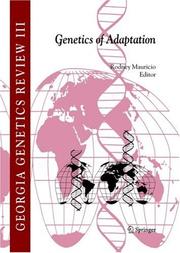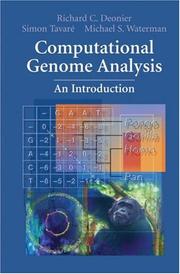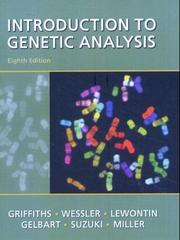| Listing 1 - 10 of 12 | << page >> |
Sort by
|

ISBN: 128105979X 9786611059798 0080553311 0444518231 9780080553313 9780444518224 0444518223 9780444511737 0444511733 9780444518231 9786611055059 1281055050 0080553249 Year: 2005 Publisher: Amsterdam ; London : Elsevier,
Abstract | Keywords | Export | Availability | Bookmark
 Loading...
Loading...Choose an application
- Reference Manager
- EndNote
- RefWorks (Direct export to RefWorks)
The Handbook of Stress and the Brain focuses on the impact of stressful events on the functioning of the central nervous system; how stress affects molecular and cellular processes in the brain, and in turn, how these brain processes determine our perception of and reactivity to, stressful challenges - acutely and in the long-run. Written for a broad scientific audience, the Handbook comprehensively reviews key principles and facts to provide a clear overview of the interdisciplinary field of stress. The work aims to bring together the disciplines of neurobiology, physiology, immuno
Stress (Physiology) --- Neuroendocrinology --- Endocrinology --- Neurology --- Neurohormones --- Physiological stress --- Tension (Physiology) --- Adaptation (Biology)

ISBN: 1282424807 9786612424809 8132103408 9788132103400 0761933123 9780761933120 8178294664 9788178294667 Year: 2005 Publisher: Thousand Oaks, CA : Response Books,
Abstract | Keywords | Export | Availability | Bookmark
 Loading...
Loading...Choose an application
- Reference Manager
- EndNote
- RefWorks (Direct export to RefWorks)
All over the world, people are experiencing increasing levels of stress due to a variety of reasons which include pressures at the workplace, marital or family stress and changing social mores, among others. This has contributed to deteriorating health and an alarming growth in lifestyle-related diseases, such as diabetes and chronic heart problems. The author presents an absorbing and comprehensive look at the concept of stress and explores its physiological effects, our body's stress responses and its results. He presents a guide to choosing the most appropriate techniques to manage stress a
Stress (Psychology) --- Stress (Physiology) --- Stress management. --- Emotional stress --- Mental stress --- Psychological stress --- Tension (Psychology) --- Mental health --- Psychology --- Diathesis-stress model (Psychology) --- Life change events --- Type A behavior --- Management, Stress --- Health --- Physiological stress --- Tension (Physiology) --- Adaptation (Biology)
Periodical
ISSN: 15537390 15537404 Year: 2005 Publisher: San Francisco, CA : Public Library of Science,
Abstract | Keywords | Export | Availability | Bookmark
 Loading...
Loading...Choose an application
- Reference Manager
- EndNote
- RefWorks (Direct export to RefWorks)
Human genetics --- Genetics --- Génétique --- Periodicals. --- Périodiques --- Genetics. --- Life Sciences --- Biology --- gene discovery --- population genetics --- genome projects --- comparative genomics --- functional genomics --- medical genetics --- Embryology --- Mendel's law --- Adaptation (Biology) --- Breeding --- Chromosomes --- Heredity --- Mutation (Biology) --- Variation (Biology) --- Genetic Structures --- Genetic Phenomena --- Antropologie. --- Geschiedenis.

ISBN: 9780521019330 0521019338 9780521360999 0521360994 Year: 2005 Publisher: Cambridge ; New York : Cambridge University Press,
Abstract | Keywords | Export | Availability | Bookmark
 Loading...
Loading...Choose an application
- Reference Manager
- EndNote
- RefWorks (Direct export to RefWorks)
Mammals --- Adaptation (Biology) --- Mammals, Fossil --- Body size --- Mammifères --- Adaptation (Biologie) --- Mammifères fossiles --- Constitution corporelle --- Size --- Congresses. --- Taille --- Congrès --- Mammals [Fossil ] --- Congresses --- Evolution --- Mammals, Fossil - Congresses. --- Body size - Congresses. --- Mammals - Evolution - Congresses. --- Mammifères --- Adaptation (biologie) --- Mammals, Fossil. --- Mensurations. --- Fossiles.

ISBN: 113435312X 1280174889 9786610174881 0203343689 9780203343685 9781134353118 1134353111 9780415322423 0415322421 9781280174889 6610174881 9781134353071 9781134353125 9781138862234 Year: 2005 Publisher: London ; New York : RoutledgeCurzon,
Abstract | Keywords | Export | Availability | Bookmark
 Loading...
Loading...Choose an application
- Reference Manager
- EndNote
- RefWorks (Direct export to RefWorks)
One of the most dynamic research areas in the prehistory of East Asian regions is the synthesis of the findings of archaeology, linguistics and genetics. Several countries have only recently opened to field research and highly active local groups have made possible a raft of collaborative studies that would have been impossible even a decade ago. This book presents an overview of the most recent findings in all these fields. It will be of great interest to scholars of all disciplines working on the reconstruction of the East Asian past.
Archaeology --- Linguistics --- Genetics --- Biology --- Embryology --- Mendel's law --- Adaptation (Biology) --- Breeding --- Chromosomes --- Heredity --- Mutation (Biology) --- Variation (Biology) --- Linguistic science --- Science of language --- Language and languages --- Archeology --- Anthropology --- Auxiliary sciences of history --- History --- Antiquities --- S11/1000 --- S17/0200 --- China: Social sciences--Population, demography: Asia --- China: Art and archaeology--Archaeology and prehistory: general and Asia (incl. human palaeontology) --- East Asia
Book
ISBN: 1280312289 9786610312283 0387277331 Year: 2005 Publisher: New York, NY : Springer New York : Imprint: Springer,
Abstract | Keywords | Export | Availability | Bookmark
 Loading...
Loading...Choose an application
- Reference Manager
- EndNote
- RefWorks (Direct export to RefWorks)
In the field of molecular evolution, inferences about past evolutionary events are made using molecular data from currently living species. With the availability of genomic data from multiple related species, molecular evolution has become one of the most active and fastest growing fields of study in genomics and bioinformatics. Most studies in molecular evolution rely heavily on statistical procedures based on stochastic process modelling and advanced computational methods including high-dimensional numerical optimization and Markov Chain Monte Carlo. This book provides an overview of the statistical theory and methods used in studies of molecular evolution. It includes an introductory section suitable for readers that are new to the field, a section discussing practical methods for data analysis, and more specialized sections discussing specific models and addressing statistical issues relating to estimation and model choice. The chapters are written by the leaders in the field and they will take the reader from basic introductory material to the state-of the-art statistical methods. This book is suitable for statisticians seeking to learn more about applications in molecular evolution and molecular evolutionary biologists with an interest in learning more about the theory behind the statistical methods applied in the field. The chapters of the book assume no advanced mathematical skills beyond basic calculus, although familiarity with basic probability theory will help the reader. Most relevant statistical concepts are introduced in the book in the context of their application in molecular evolution, and the book should be accessible for most biology graduate students with an interest in quantitative methods and theory. Rasmus Nielsen received his Ph.D. form the University of California at Berkeley in 1998 and after a postdoc at Harvard University, he assumed a faculty position in Statistical Genomics at Cornell University. He is currently an Ole Rømer Fellow at the University of Copenhagen and holds a Sloan Research Fellowship. His is an associate editor of the Journal of Molecular Evolution and has published more than fifty original papers in peer-reviewed journals on the topic of this book.
Molecular evolution --- Molecular biology --- Evolution (Biology) --- Statistical methods. --- Mathematical models. --- Animal evolution --- Animals --- Biological evolution --- Darwinism --- Evolutionary biology --- Evolutionary science --- Origin of species --- Biology --- Evolution --- Biological fitness --- Homoplasy --- Natural selection --- Phylogeny --- Molecular biochemistry --- Molecular biophysics --- Biochemistry --- Biophysics --- Biomolecules --- Systems biology --- Biochemical evolution --- Chemical evolution --- Life --- Origin --- Evolution (Biology). --- Bioinformatics. --- Statistics. --- Genetics --- Plant genetics. --- Evolutionary Biology. --- Statistics for Life Sciences, Medicine, Health Sciences. --- Genetics and Population Dynamics. --- Mathematical and Computational Biology. --- Plant Genetics and Genomics. --- Mathematics. --- Plants --- Embryology --- Mendel's law --- Adaptation (Biology) --- Breeding --- Chromosomes --- Heredity --- Mutation (Biology) --- Variation (Biology) --- Statistical analysis --- Statistical data --- Statistical methods --- Statistical science --- Mathematics --- Econometrics --- Bio-informatics --- Biological informatics --- Information science --- Computational biology --- Data processing --- Evolutionary biology. --- Statistics . --- Biomathematics.

ISBN: 0470843942 0470843934 Year: 2005 Publisher: Chichester Wiley
Abstract | Keywords | Export | Availability | Bookmark
 Loading...
Loading...Choose an application
- Reference Manager
- EndNote
- RefWorks (Direct export to RefWorks)
Bioinformatics for Geneticists describes a step by step approach to key bioinformatics and genetic analysis procedures, based upon practical experience gained after many years of direct bioinformatics support for laboratory geneticists. It features detailed case studies of problems and analytical approaches that are specific to the needs of the genetics researcher. The book contains reviews of bioinformatics tools and genetic databases. Each chapter is written to capture the principles of analysis regardless of the tool used, thereby ensuring that the book stays relevant as new data and tools become available. As the first book specifically addressing the informatics requirements of geneticists, Bioinformatics for Geneticists is essential reading for all those engaged in genetic research and should prove indispensable for both the planning and analysis of such studies. The book provides in-depth coverage of the underlying principles of both genetic and bioinformatic analysis which should make this book suitable for all students of genetics or bioinformatics. The book takes a web-based approach to bioinformatics, suitable for bot h internet novices and more experienced web users. The focus is on public software tools and databases freely available to all. The editors and authors bring a broad range of experience from academic and industrial genetics research environments. The book is accessible to individuals outside the immediate field of molecular genetics, e.g. statisticians, epidemiologists and physicians who wish to improve their knowledge of bioinformatics and genetics. This is currently the only book specifically aimed at the bioinformatics needs and priorities of genetics researchers.
575.113 <035> --- 57.087 --- 577.212.3 --- 577.212.3 Nucleic acid base and sequence compositon. Experimental deciphering of genetic code. --- Nucleic acid base and sequence compositon. Experimental deciphering of genetic code. --- 575.113 <035> Gene. Genetic apparatus. Genome--Grote handboeken. Compendia --- Gene. Genetic apparatus. Genome--Grote handboeken. Compendia --- Methods and techniques for parameter estimation. Recording of biological data. Bioinformatics --- Bioinformatics --- Genetics --- Biology --- Embryology --- Mendel's law --- Adaptation (Biology) --- Breeding --- Chromosomes --- Heredity --- Mutation (Biology) --- Variation (Biology) --- Bio-informatics --- Biological informatics --- Information science --- Computational biology --- Systems biology --- Data processing --- Nucleic acid base and sequence compositon. Experimental deciphering of genetic code --- genetica --- moleculaire biologie --- Molecular biology --- Bioinformatics. --- Data processing. --- bio-informatica

ISBN: 1280284110 9786610284115 1402038364 1402034768 9048168767 Year: 2005 Volume: 3 Publisher: Dordrecht : Springer Netherlands : Imprint: Springer,
Abstract | Keywords | Export | Availability | Bookmark
 Loading...
Loading...Choose an application
- Reference Manager
- EndNote
- RefWorks (Direct export to RefWorks)
An enduring controversy in evolutionary biology is the genetic basis of adaptation. Darwin emphasized "many slight differences" as the ultimate source of variation to be acted upon by natural selection. In the early 1900’s, this view was opposed by "Mendelian geneticists", who emphasized the importance of "macromutations" in evolution. The Modern Synthesis resolved this controversy, concluding that mutations in genes of very small effect were responsible for adaptive evolution. A decade ago, Allen Orr and Jerry Coyne reexamined the evidence for this neo-Darwinian view and found that both the theoretical and empirical basis for it were weak. Orr and Coyne encouraged evolutionary biologists to reexamine this neglected question: what is the genetic basis of adaptive evolution? In this volume, a new generation of biologists have taken up this challenge. Using advances in both molecular genetic and statistical techniques, evolutionary geneticists have made considerable progress in this emerging field. In this volume, a diversity of examples from plant and animal studies provides valuable information for those interested in the genetics and evolution of complex traits.
Adaptation (Biology) --- Evolutionary genetics --- Genetic evolution --- Evolution (Biology) --- Genetics --- Life sciences. --- Evolution (Biology). --- Ecology. --- Animal genetics. --- Biodiversity. --- Life Sciences, general. --- Popular Science in Nature and Environment. --- Evolutionary Biology. --- Community & Population Ecology. --- Animal Genetics and Genomics. --- Biological diversification --- Biological diversity --- Biotic diversity --- Diversification, Biological --- Diversity, Biological --- Biology --- Biocomplexity --- Ecological heterogeneity --- Numbers of species --- Balance of nature --- Bionomics --- Ecological processes --- Ecological science --- Ecological sciences --- Environment --- Environmental biology --- Oecology --- Environmental sciences --- Population biology --- Animal evolution --- Animals --- Biological evolution --- Darwinism --- Evolutionary biology --- Evolutionary science --- Origin of species --- Evolution --- Biological fitness --- Homoplasy --- Natural selection --- Phylogeny --- Biosciences --- Sciences, Life --- Science --- Ecology --- Nature. --- Environment. --- Evolutionary biology. --- Community ecology, Biotic. --- Biocenoses --- Biocoenoses --- Biogeoecology --- Biological communities --- Biomes --- Biotic community ecology --- Communities, Biotic --- Community ecology, Biotic --- Ecological communities --- Ecosystems --- Natural communities

ISBN: 0387987851 1441931627 0387288074 Year: 2005 Publisher: New York, NY : Springer New York : Imprint: Springer,
Abstract | Keywords | Export | Availability | Bookmark
 Loading...
Loading...Choose an application
- Reference Manager
- EndNote
- RefWorks (Direct export to RefWorks)
Computational Genome Analysis: An Introduction presents the foundations of key problems in computational molecular biology and bioinformatics. It focuses on computational and statistical principles applied to genomes, and introduces the mathematics and statistics that are crucial for understanding these applications. The book is appropriate for a one-semester course for advanced undergraduate or beginning graduate students, and it can also introduce computational biology to computer scientists, mathematicians, or biologists who are extending their interests into this exciting field. This book features:Topics organized around biological problems, such as sequence alignment and assembly, DNA signals, analysis of gene expression, and human genetic variation. Presentation of fundamentals of probability, statistics, and algorithms. Implementation of computational methods with numerous examples based upon the R statistics package. Extensive descriptions and explanations to complement the analytical development. More than 100 illustrations and diagrams (some in color) to reinforce concepts and present key results from the primary literature. Exercises at the end of chapters. Richard C. Deonier is Professor Emeritus in the Molecular and Computational Biology Section of the Department of Biological Sciences at the University of Southern California. Originally trained as a physical biochemist, His major research has been in areas of molecular genetics, with particular interests in physical methods for gene mapping, bacterial transposable elements, and conjugative plasmids. During 30 years of active teaching, he has taught chemistry, biology, and computational biology at both the undergraduate and graduate levels. Simon Tavaré holds the George and Louise Kawamoto Chair in Biological Sciences and is a Professor of Biological Sciences, Mathematics, and Preventive Medicine at the University of Southern California. Professor Tavaré's research lies at the interface between statistics and biology, specifically focusing on problems arising in molecular biology, human genetics, population genetics, molecular evolution, and bioinformatics. His statistical interests focus on stochastic computation. Among the applications are linkage disequilibrium mapping, stem cell evolution, and inference in the fossil record. Dr. Tavaré is also a professor in the Department of Oncology at the University of Cambridge, England, where his group concentrates on cancer genomics. Michael S. Waterman is a University Professor, a USC Associates Chair in Natural Sciences, and Professor of Biological Sciences, Computer Science, and Mathematics at the University of Southern California. A member of the National Academy of Sciences and the American Academy of Arts and Sciences, Professor Waterman is Founding Editor and Co-Editor in Chief of the Journal of Computational Biology. His research has focused on computational analysis of molecular sequence data. His best-known work is the co-development of the local alignment Smith-Waterman algorithm, which has become the foundational tool for database search methods. His interests have also encompassed physical mapping, as exemplified by the Lander-Waterman formulas, and genome sequence assembly using an Eulerian path method.
Genetics --- Génétique --- Mathematical models --- Modèles mathématiques --- Mathematics. --- Genetics -- Mathematics. --- Genomics --- Sequence Analysis --- Genome --- Computational Biology --- Biology --- Genetic Structures --- Genetic Techniques --- Genetic Phenomena --- Biological Science Disciplines --- Investigative Techniques --- Phenomena and Processes --- Natural Science Disciplines --- Analytical, Diagnostic and Therapeutic Techniques and Equipment --- Disciplines and Occupations --- Biology - General --- Health & Biological Sciences --- Mathematics --- Génétique --- Modèles mathématiques --- EPUB-LIV-FT LIVSTATI SPRINGER-B --- Computer science. --- Mathematical statistics. --- Bioinformatics. --- Biomathematics. --- Statistics. --- Computer Science. --- Computational Biology/Bioinformatics. --- Genetics and Population Dynamics. --- Statistics for Life Sciences, Medicine, Health Sciences. --- Probability and Statistics in Computer Science. --- Embryology --- Mendel's law --- Adaptation (Biology) --- Breeding --- Chromosomes --- Heredity --- Mutation (Biology) --- Variation (Biology) --- Statistical analysis --- Statistical data --- Statistical methods --- Statistical science --- Econometrics --- Bio-informatics --- Biological informatics --- Information science --- Computational biology --- Systems biology --- Informatics --- Science --- Data processing --- Statistics . --- Statistical inference --- Statistics, Mathematical --- Statistics --- Probabilities --- Sampling (Statistics)

ISBN: 0716749394 9780716749394 Year: 2005 Publisher: New York (N.Y.) Freeman
Abstract | Keywords | Export | Availability | Bookmark
 Loading...
Loading...Choose an application
- Reference Manager
- EndNote
- RefWorks (Direct export to RefWorks)
Genetics --- Genetic Techniques --- Methodology --- Expression des gènes --- gene expression --- ADN --- DNA --- Génétique quantitative --- Quantitative genetics --- Génétique des populations --- population genetics --- Transformation génétique --- genetic transformation --- Valeur génétique --- breeding value --- Genetics. --- 577.21 --- 575.113 --- -Molecular genetics --- 575.1 --- 579.6 --- DNA deoxyribonucleic acid --- RNA ribonucleic acid --- bacteriën --- biochemie --- biologie --- celdeling --- chromosomen --- erfelijkheid --- evolutiemechanismen --- fenotypering --- genetica --- genoom --- microbiologie --- mitose --- moleculaire biologie --- mutaties --- populatiegenetica --- proteïnen --- recombinant DNA --- replicatie --- statistiek --- transcriptie --- translatie --- virussen --- Molecular biology --- Biology --- Embryology --- Mendel's law --- Adaptation (Biology) --- Breeding --- Chromosomes --- Heredity --- Mutation (Biology) --- Variation (Biology) --- Genetic Processes --- Genetic Structures --- Genetic Phenomena --- Molecular mechanism of coding, storage and realization of inheritance information. Molecular genetics. Molecular biology of the gene --- Gene. Genetic apparatus. Genome --- Erfelijkheid. Overerving --- toegepaste microbiologie --- 575.113 Gene. Genetic apparatus. Genome --- 577.21 Molecular mechanism of coding, storage and realization of inheritance information. Molecular genetics. Molecular biology of the gene --- DNA. --- Basic Sciences. Genetics -- Genetics (General) --- ALLW. --- Genetics - Methodology --- Acqui 2006 --- Analyse mendelienne --- Mutation genique --- Mutation chromosomique
| Listing 1 - 10 of 12 | << page >> |
Sort by
|

 Search
Search Feedback
Feedback About
About Help
Help News
News